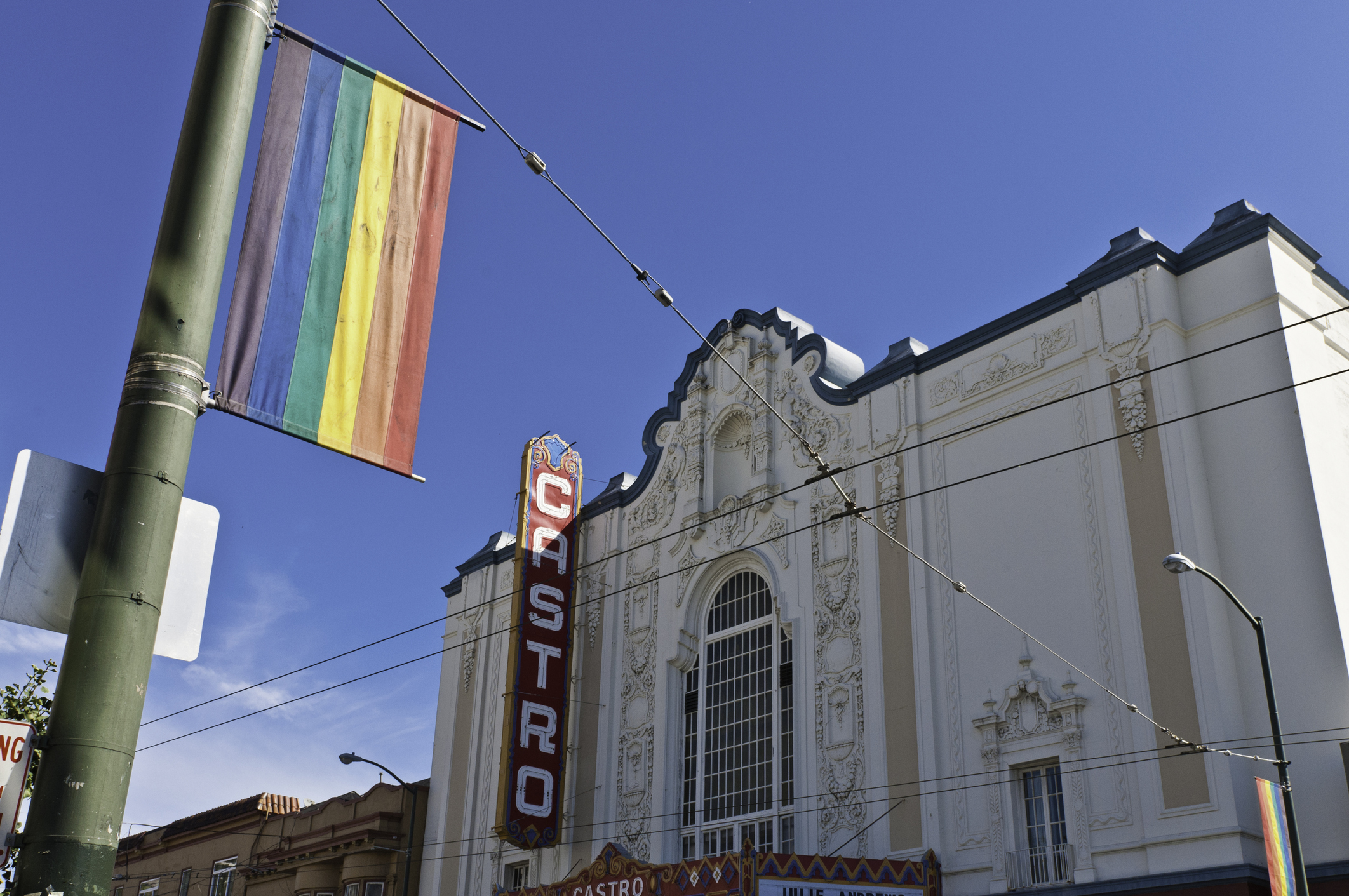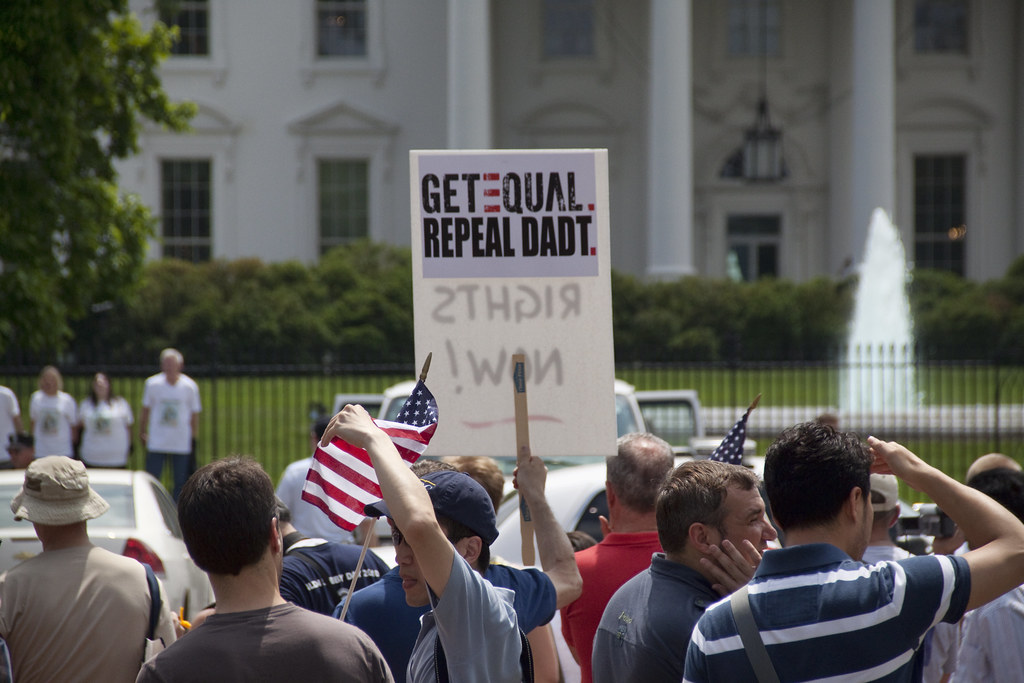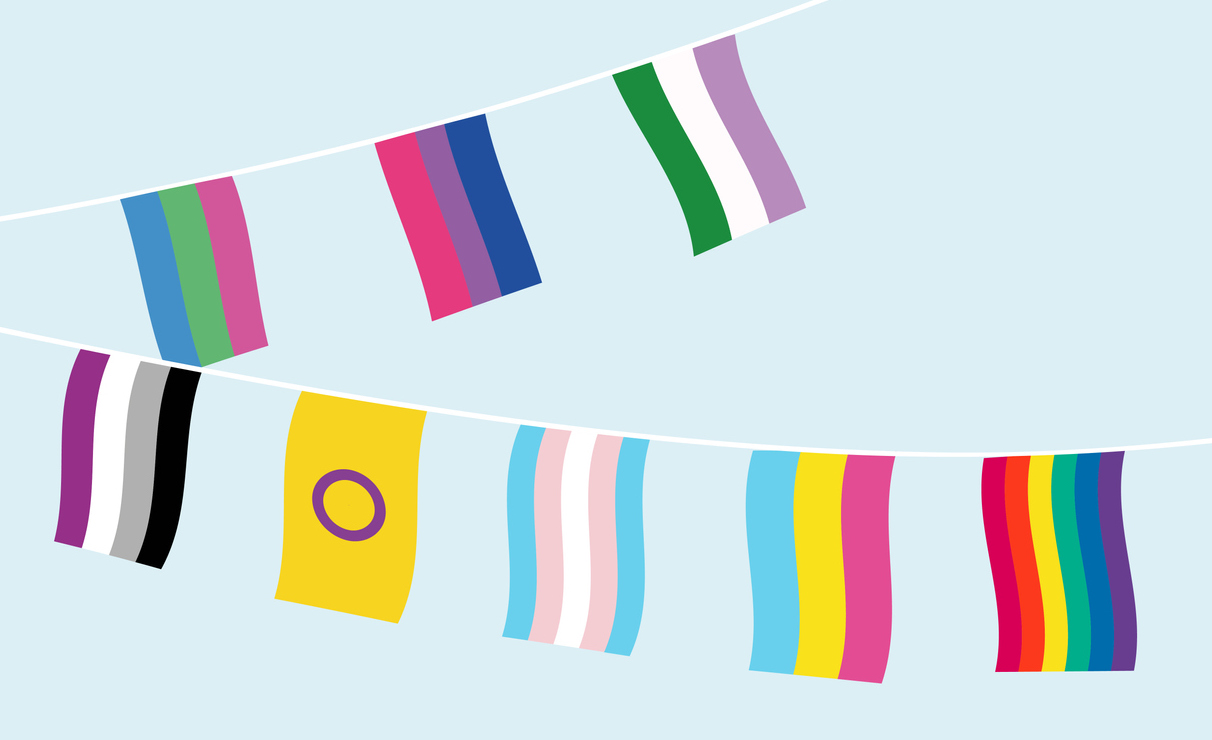
June is LGBTQ+ Pride Month, which honors the 1969 Stonewall uprisings. This event served as a historical tipping point for gender and sexual orientation representation and started the Gay Liberation Movement for equality and push for legislation to support this community in the United States. However, there have been several additional key events and historical figures in the fight for human and LGBTQ+ rights throughout history. Teachers can connect current themes and topics trending in the United States with the other historical LGBTQ+ events listed below.
Stonewall Riots (1969)
The Stonewall Riots, also known as the Stonewall uprising, took place in June 1969 in New York City’s Greenwich Village. The events unfolded at the Stonewall Inn, a popular gay bar, and are widely regarded as a pivotal moment in the LGBTQ+ rights movement.
In the 1960s, LGBTQ+ individuals faced widespread discrimination and frequent police raids on establishments that served as gathering places for the community. On the night of June 28, 1969, a routine police raid was conducted at the Stonewall Inn, targeting the bar’s patrons who were predominantly LGBTQ+. However, instead of submitting quietly to the raid as was typically the case, this time, the patrons at the Stonewall Inn resisted. The initial spark for the resistance is believed to have come when a lesbian woman, Stormé DeLarverie, fought back against the police officers. This act of resistance ignited a powerful reaction from the crowd. Over the course of several nights, the community and its allies engaged in protests, demonstrations, and clashes with the police. The protests were characterized by a collective sense of frustration, anger, and a demand for their rights to be recognized.
The Stonewall Riots galvanized the LGBTQ+ community, leading to the formation of various activist groups and the emergence of a more organized and visible LGBTQ+ rights movement. It marked a turning point, shifting the focus from more covert activism to a more public and assertive fight for equality. The events at Stonewall had a ripple effect, sparking LGBTQ+ rights movements and pride parades in cities across the United States and around the world. The following year, in June 1970, the first Pride parades commemorating the Stonewall Riots were held in New York City, Los Angeles, and Chicago, marking the beginning of what would become an annual celebration and a symbol of LGBTQ+ visibility and resilience.

AIDS Crisis and ACT UP (1980s and 1990s)
The emergence of the AIDS epidemic in the 1980s had a profound impact on the LGBTQ+ community. Activism and advocacy efforts emerged to fight for adequate medical care, research funding, and an end to discrimination. Organizations like ACT UP (AIDS Coalition to Unleash Power) played a crucial role in demanding government action and raising awareness about HIV/AIDS.
At the onset of the crisis, there was widespread fear, ignorance, and misinformation surrounding HIV/AIDS. The disease was stigmatized, leading to discrimination and social ostracization of those affected. Many marginalized communities, including gay and bisexual men, intravenous drug users, and sex workers, were particularly affected and faced increased discrimination. The AIDS crisis spurred significant activism and advocacy efforts by affected communities, medical professionals, and allies. Organizations like ACT UP (AIDS Coalition to Unleash Power) emerged, demanding increased funding for research, faster drug approval processes, and improved access to healthcare for those living with HIV/AIDS. ACT UP chapters were established in various cities across the United States and around the world, fostering collaboration and sharing of tactics and strategies. The organization’s activism contributed to changes in public policy, research funding, and public health initiatives related to HIV/AIDS. It also played a crucial role in destigmatizing the disease and promoting comprehensive sex education, prevention efforts, and harm reduction strategies.
The AIDS crisis brought attention to the importance of public health education, destigmatization, and comprehensive healthcare for marginalized communities. While progress has been made in the fight against HIV/AIDS, the impact of the crisis continues to be felt, and efforts to combat the disease and ensure equitable access to prevention, treatment, and support services are ongoing.
Obergefell v. Hodges (2015)
Obergefell v. Hodges refers to a landmark United States Supreme Court case that was decided in 2015. The case dealt with the issue of same-sex marriage and played a significant role in the advancement of LGBTQ+ rights in the United States. Prior to the ruling, same-sex marriage was not recognized on a nationwide level. Various states had their own laws regarding marriage, and many states explicitly banned same-sex marriage or did not recognize marriages performed in other states. The case originated from a consolidation of several lawsuits filed by same-sex couples from four different states: Ohio, Michigan, Kentucky, and Tennessee. The plaintiffs argued that the state bans on same-sex marriage violated the Due Process and Equal Protection Clauses of the Fourteenth Amendment of the United States Constitution.
On June 26, 2015, the Supreme Court delivered its ruling in a 5-4 decision. The Court held that the Fourteenth Amendment requires a state to license a marriage between two people of the same sex and also requires states to recognize same-sex marriages performed legally in other jurisdictions. The ruling effectively legalized same-sex marriage throughout the United States, granting same-sex couples the same legal rights and recognition as opposite-sex couples. It marked a significant milestone for LGBTQ+ rights, affirming marriage equality as a fundamental right guaranteed by the Constitution. Obergefell v. Hodges not only led to legal recognition of same-sex marriage nationwide but also had broader implications, impacting areas such as healthcare, inheritance rights, adoption, and other legal protections that come with marriage.
The decision was celebrated by LGBTQ+ communities and advocates as a major step forward in achieving equality, though ongoing efforts and challenges remain in securing and protecting LGBTQ+ rights.

Don’t Ask, Don’t Tell Repeal (2011)
In the United States, the “Don’t Ask, Don’t Tell” policy, which banned openly gay, lesbian, or bisexual individuals from serving in the military, was repealed in 2011. This allowed LGBTQ+ individuals to serve openly in the armed forces.In 2010, President Barack Obama signed the Don’t Ask, Don’t Tell Repeal Act, which aimed to end the policy and allow gay, lesbian, and bisexual individuals to serve openly in the military. The act included a provision requiring a period of preparation before the policy was officially repealed. The repeal process was completed on September 20, 2011, when DADT officially ended, allowing LGBTQ+ individuals to serve openly without fear of expulsion based on their sexual orientation. The repeal of Don’t Ask, Don’t Tell was seen as a significant step towards LGBTQ+ equality and removed a barrier to military service for many individuals in the United States.
Transgender Rights Movement
In recent years, there has been increased visibility and activism surrounding transgender rights. The transgender rights movement recognizes the intersections of gender identity with other aspects of a person’s identity, such as race, ethnicity, sexual orientation, disability, and socioeconomic status. It acknowledges that transgender individuals may face multiple forms of discrimination and works to address and uplift these intersecting experiences. Movements have focused on issues such as legal recognition of gender identity, access to healthcare, anti-discrimination protections, and broader societal acceptance. The transgender rights movement continues to advocate for equal rights and better understanding of gender diversity.
The movement recognizes that gender identity is not solely determined by biological sex assigned at birth. Transgender individuals have a gender identity that differs from the sex they were assigned at birth. The movement emphasizes the importance of self-identification and the right to express one’s gender identity authentically. Numerous campaigns and initiatives have emerged to advance transgender rights, including efforts to promote legal gender recognition, protect transgender youth, address healthcare disparities, and combat discrimination in various spheres of life. Examples include the “Trans Rights Are Human Rights” campaign and the “Protect Trans Kids” movement.
LGBTQ+ history is an important part of United States history and understanding human rights
Try a free 30-day trial of Active Classroom for additional resources
Resources
https://www.loc.gov/lgbt-pride-month/about/
https://lgbthistorymonth.com/
Monet Hendricks is the blog editor and meme connoisseur for Social Studies School Service. Passionate about the field of education, she earned her BA from the University of Southern California before deciding to go back to get her Master’s degree in Educational Psychology. She attended the graduate program at Azusa Pacific University pursuing her post-grad Educational Specialist degree in School Psychology and Applied Behavior Analysis and currently works as a School Psychologist in Los Angeles, CA. Her favorite activities include traveling, watching documentaries on mental health, and cooking adventurous vegetarian recipes.

